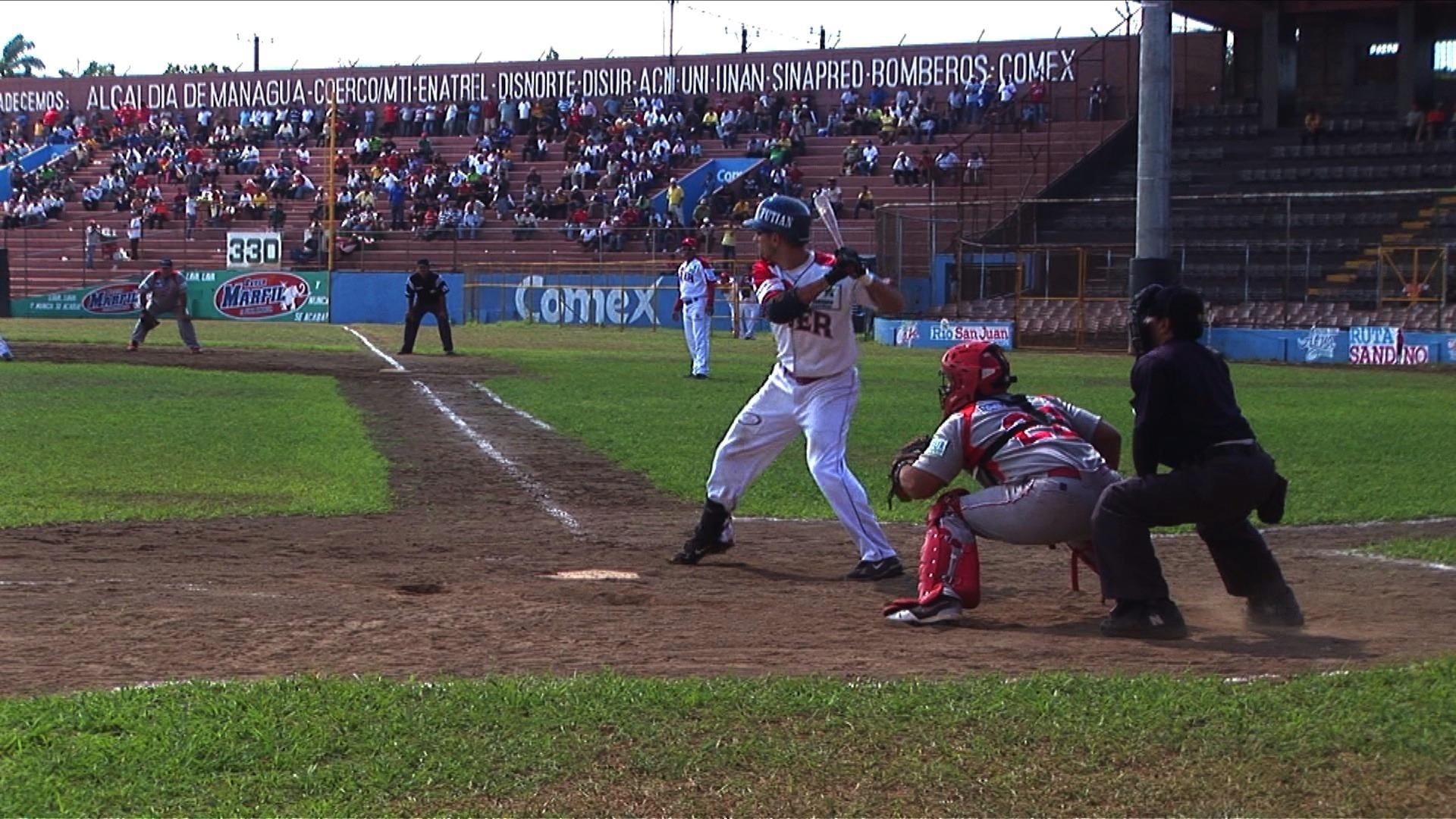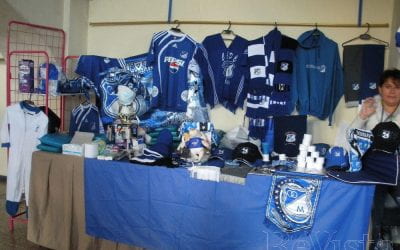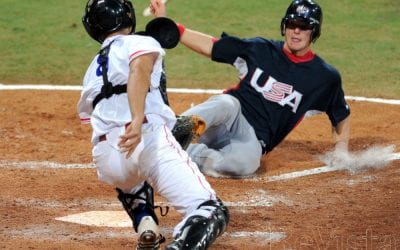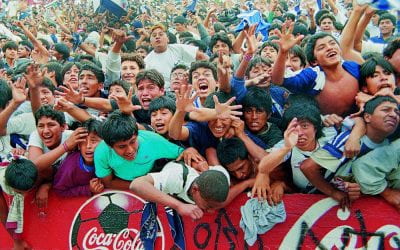In its Cold War zeal, the Reagan administration relentlessly sought to portray the Sandinista revolution as a projection of Soviet-Cuban power in “our backyard.” It once used intelligence photos of ubiquitous baseball fields to show that baseball loving Cubans were all over Nicaragua. It was, for the equally baseball-crazed Nicaraguans, one of the few laughs enjoyed by all sides to the 1980s conflict.
Baseball in Nicaragua did not stop during those war-torn years, but it was severely damaged by military service and the overall economic catastrophe of the war. One of the baseball casualties was Eduardo Holmann, a promising outfielder who had played in the Nicaraguan professional league for four years in the 1970s. He put baseball aside to join the revolt against Somoza, and then became a Sandinista agrarian reform official—a position that took him into war zones where the U.S.-backed “contras” attacked farm cooperatives and ambushed government officials.
In 1984 Susan Meiselas, the preeminent photographer of the Nicaraguan revolution, and Alfred Guzzetti, now Harvard’s Osgood Hooker Professor of Visual Arts, created Living at Risk, a film that portrays the mother and five children of the historically prominent but politically divided Barrios family. The film shows the siblings participating in the revolution. One of the siblings, Martisabel, was married to Eduardo Holmann, who has a prominent part in the film. At one point, we see him playing catch with a young son.
In 2010, Meiselas and Guzzetti made The Barrios Family 25 Years Later, the second part of a two-DVD collection called A Family in History. We meet again the protagonists of Living at Risk, and also their children, who were the toddlers inLiving at Risk. Eduardo and Martisabel have divorced, and their daughter and two sons have grown up.
Each son had taken up baseball and had been signed by Major League teams. In an interview in San Juan del Sur, Nicaragua, last November, Eduardo told me that young Carlos Eduardo, signed up by the LA Dodgers, had his career cut short by an injury. Mario had played three years in the NY Yankees farm system. He was their most adept second baseman at fielding—but had not hit well enough to make it to the majors.
Carlos Eduardo tells us that his father dreamed his sons could play ball. He says, “Baseball is in our blood.” And it teaches valuable skills: discipline, dedication, and punctuality that carry over into one’s professional life. Carlos Eduardo studied engineering and manages a pharmaceutical chain in Managua.
In the DVD, Mario is seen playing for the Boers, Nicaragua’s most famous team with a history going back to the 1920s. We see Eduardo urging Mario—now that his career with the Yankees is over—to continue his studies. Mario’s response: no problem—baseball practice in the morning; classes in the afternoon. Mario completed an engineering degree from the University of Managua.
When I called Eduardo for an interview, he suggested that my friend Judy Butler, a long time resident and translator in Nicaragua, and I meet him in the evening in San Juan del Sur’s central park. Eduardo, who had been mayor of San Juan del Sur (1995-1999), greeted us and took us to a small outdoor sandwich shop in the park. As it happened, the sandwich shop’s small television set was showing a baseball game. And, as it happened, Mario was playing. The irony that Mario had played for the Yankees was not lost on Eduardo. When Mario hit a towering drive he attempted to stretch the hit into a double, a dangerous gamble considering that the Boers by this time were far behind. He was thrown out at second base, much to the amusement of his cheering father.
The next morning, on our way out of town to visit the wind farm of Miguel Barrios, another one of the siblings, we spotted a live game—Las Aguilas were playing Los Delfines in the Gran Final Del Beisbol Infantil. Baseball lives on in Nicaragua.





